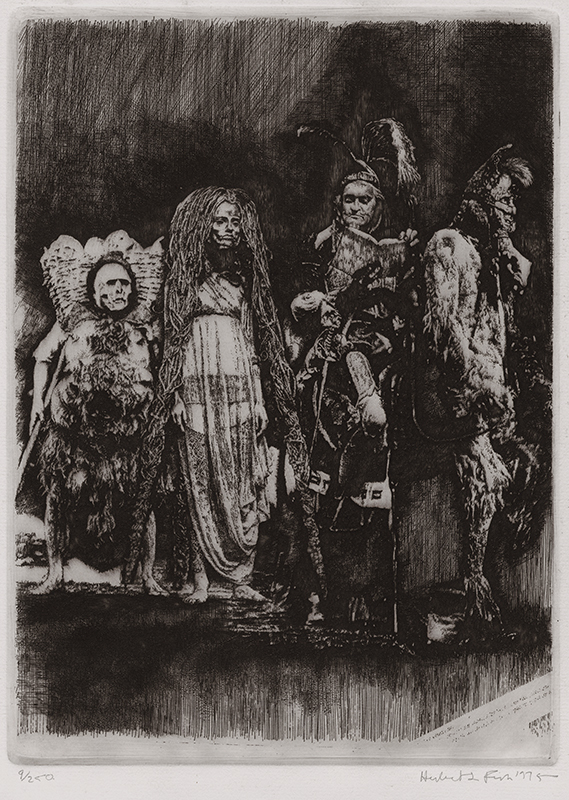
19th, 20th & 21st Century Fine Prints
707-546-7352 · fax 707-546-7924 · web: www.annexgalleries.com · email: artannex@aol.com
Muriel (Mad Meg) by Herbert Lewis Fink

Muriel (Mad Meg)
Herbert Lewis Fink
Muriel (Mad Meg)
Herbert Lewis Fink
1921 - 2006 (biography)An illustration for the book "The King's Indian", a collection of short stories by author John Gardner (1933-1982), published in 1973. "Mad Meg" was most likely inspired by a figure from Flemish folklore, Dulle Griet, who led an army of women to pillage Hell. "Mad Meg" was the subject of a painting by Pieter Bruegal the Elder, done in 1564. This is from an editioned printing of 250 impressions sold separate from the book.
A Kirkus review of Garder's "The King's Indian" collection speculated:
"Midnight tales for the literary intellectual -- which, you will rightly observe, could mean almost anything from Mensa-level insomniac pastime to serious brooding. All suggestions apply here, and all at once, for Gardner's subject is imagination, and this is a much more complicated study now than when Poe and Coleridge gave it their go. Gardner has read Poe and Coleridge -- probably all their commentators too, and he has read the phenomenologists and seen Twilight Zone: the issue is no longer anything so simple as telling the true from the false, if that is even a valid distinction.
It is enough now to tell what is what, and Gardner seems to be animating some such proposition in his games of style, mystifying us in the modern sense of the word as he plays with themes that are classically mysterious -- demons, magic, mad-science, things that are, like art, contrary to nature. Stories of spiritual menace are almost satires, but their ironies do not settle and neither does their rather unpleasant humor..."
